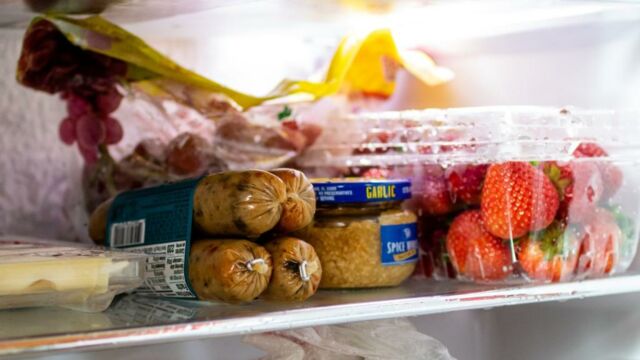Most recently, a few products have been recalled due to a possible contamination by Listeria monocytogenes. The recalls include 1400 pounds of cheese produced byCooperstown Cheese Company in the US and the Potts Partnership Ltd truffle mayonnaise in the UK.
Discover our latest podcast
It is not uncommon for products to be recalled over fears of listeria contamination but should you be worried if you see a warning on one of your most recent purchases? Read on to find out why you should be careful of consuming recalled products and what you should to protect yourself from possible infection.
Here's why you should be careful

Listeria is a type of bacteria that can lead to a serious illness known as listeriosis. Although most healthy individuals can combat the infection without showing any noticeable symptoms, it can be life-threatening for certain at-risk groups. The bacteria are commonly found in nature, and if contaminated food is stored, even in the refrigerator, it can promote the growth of Listeria.
How can you catch the infection?
Listeriosis is primarily transmitted through the consumption of food that is contaminated with Listeria bacteria. The sources of contamination can vary, as the bacteria might be present in raw foods or may contaminate food during cooking or processing. It is essential to be cautious when consuming the following types of chilled, ready-to-eat foods, as they are more likely to carry Listeria, as listed by the NHS:
- cold, cooked sliced meats and cured meats
- smoked and cured fish (including sushi)
- cooked shellfish
- soft mold-ripened cheeses like camembert and brie
- blue-veined cheeses
- pâté, pre-prepared sandwiches and salads, pre-cut fruit (such as pre-packed melon slices), unpasteurized milk, and dairy products made from unpasteurized milk.
Read more: Legionnaires' disease: Here's how to protect your home from the life-threatening summer bacteria
What are the health risks?
While listeriosis may not pose a severe threat to most individuals, it can be exceptionally hazardous to certain vulnerable groups. These high-risk individuals include:
Pregnant women
Pregnant women are more susceptible to listeriosis due to changes in their immune system. If a pregnant woman contracts listeriosis, it could lead to serious complications like miscarriage or stillbirth.
Newborn babies
Newborn babies have underdeveloped immune systems, making them highly susceptible to infections. If a baby contracts listeriosis, it can result in severe and life-threatening issues like sepsis or meningitis.
People with weak immune systems
Individuals with conditions that weaken their immune system, such as cancer, diabetes, liver disease, kidney disease, or those undergoing treatments like chemotherapy or taking steroid tablets, are at higher risk. Listeriosis can cause severe complications in these cases.
The elderly
The risk of getting seriously ill from listeriosis increases with age, and older individuals are more vulnerable to severe consequences.
Read more:
⋙ Is topless sunbathing safe for your health? Here's what science has to say
⋙ How many times you poop a day could tell you a lot about your brain's health
Prevention and safety measures
While listeriosis can be dangerous, there are practical steps you can take to minimize the risk of infection.
- Ensure that all foods, especially meats and seafood, are cooked thoroughly to kill any potential Listeria bacteria.
- Maintain proper hygiene in the kitchen by washing your hands, utensils, and surfaces regularly to avoid cross-contamination.
- Refrain from consuming high-risk foods, especially if you belong to a vulnerable group. Opt for pasteurized milk and dairy products to minimize the risk.
- Refrigerate perishable foods promptly and adhere to the recommended storage guidelines.
- Always check the expiration dates on packaged foods and discard any expired items.
Sources used:















